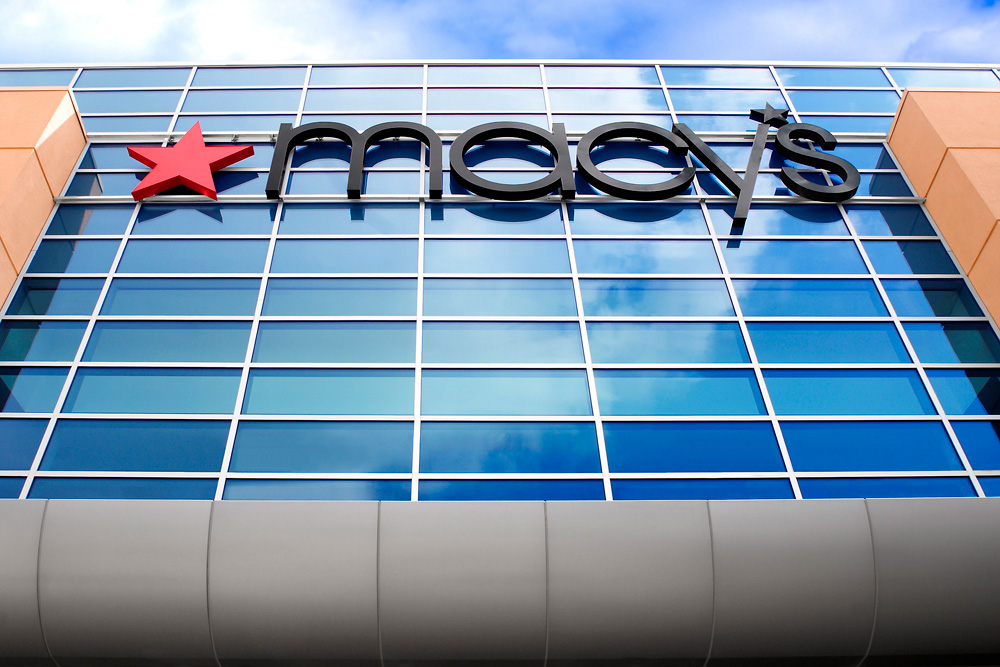New York City — Macy’s, Inc. is providing an update detailing its achievements towards its long term sustainability goals — including initiatives that promote circularity throughout its value chain. Over the past year and a half, the company has also introduced several initiatives to reduce, reuse and recycle across its private and market brand product offerings and operations.
“As a leading, omnichannel retailer, we understand the role we play in creating a more equitable and sustainable future for all. We are committed to promoting a more circular economy across our value chain,” says Keelin Evans, vice president of sustainability at Macy’s, Inc. “Our efforts are focused on providing sustainable and ethically produced brands, products and services to our customers, while reducing our impact on the environment through operations. We’re going to achieve this through our guiding social purpose platform, Mission Every One, and an enterprise-wide collaboration with partners, designers, suppliers, logistics partners, entrepreneurs, colleagues and customers.”
Macy’s aims to advance its sustainable product by offering to include circular solutions and services, prioritizing opportunities that extend the life of a product. To drive this goal and begin the transition to a more circular business, earlier this year, Macy’s became a part of the Ellen MacArthur Foundation* community, focused on accelerating and enabling the transition to a global, circular economy and FABSCRAP**, a non-profit in New York City that helps ensure that the fabric waste — an unavoidable part of the design and development process — is reused, upcycled, downcycled and recycled responsibly.
To reduce waste, Macy’s Private Brand team has embraced technology that allows the scaling back of the number of physical samples required from suppliers without impacting fit, color and other design considerations. This process has significantly decreased textile waste. In 2019, 5% of samples were digital and by the end of the 2022 development season, 61% of all samples were made virtually. This shift actively keeps product that would otherwise not have use, out of landfills.
Macy’s has also adopted best practices to reduce packaging, including standardizing the size of packing cartons and minimizing packaging materials:
- Auto-boxer and auto-bagger technology enables Macy’s to create unique packaging fitting odd or oversized items and reducing box volume and waste up to 50%.
- In 2022, virgin plastic mailer bags were edited to include 35% recycled content, reducing the thickness of the bag by 20%. As a result, virgin plastic input was reduced by more than 50%.
- All cardboard used by Macy’s fulfillment centers is FSC certified and is comprised of 35% recycled content.
- In spring 2022, most packages digital Macy’s orders fulfilled by fulfillment centers do not include printed invoices to reduce unnecessary waste as customers are able to reference order information in their online accounts and email receipts.
To reuse and extend the life of all products, the Macy’s reverse logistics team is dedicated to moving goods from customers back to the sellers, or manufacturers, or sold to resellers to continue the lifecycle of the product. Through its partnership with Give Back Box***, Macy’s customers can contribute to the responsible lifecycle of their clothes, toys and other pre-loved items by downloading a pre-paid shipping label from Macy’s website and sending them to be donated for resale and recycling.
As part of its 2025 goal to recycle as much material as possible, the Macy’s beauty products team launched a pilot program to minimize environmental impact by shipping outdated collateral to a third party to be recycled rather than disposing of it in-store. Macy’s also launched a program to use RFID technology to track participation and weights of store cardboard recycling as part of its goal to increase store recycling rates to 80% by 2025.
For more information about Macy’s, Inc.’s sustainability initiatives and reporting, visit www.macysinc.com/purpose.
* The Ellen MacArthur Foundation is an international charity that develops and promotes the circular economy in order to tackle some of the biggest challenges of our time, such as climate change, biodiversity loss, waste and pollution. Increasingly based on renewable energy, a circular economy is driven by design to eliminate waste, circulate products and materials, and regenerate nature, to create resilience and prosperity for business, the environment and society.
** FABSCRAP is a nonprofit organization that has pioneered a system to recycle and reuse fabric waste, creating an accessible materials resource for creative communities while reducing the fashion industry’s impact on the planet. FABSCRAP has saved over 1.25 million pounds 1 million pounds of fabric from landfill, the CO2-reducing equivalent of planting 138,000 trees.
*** The purpose of Give Back Box® is to provide an effortless and convenient method of donating your used household items. Give Back Box also gives a secondary use to corrugated boxes and guarantees they will be recycled.
Headquartered in New York City, Macy’s, Inc. operates one of retail’s largest e-commerce businesses integrated with a nationwide footprint to deliver the most convenient and seamless shopping experience. For more information, visit www.macysinc.com.
SOURCE: Macy’s, Inc.

